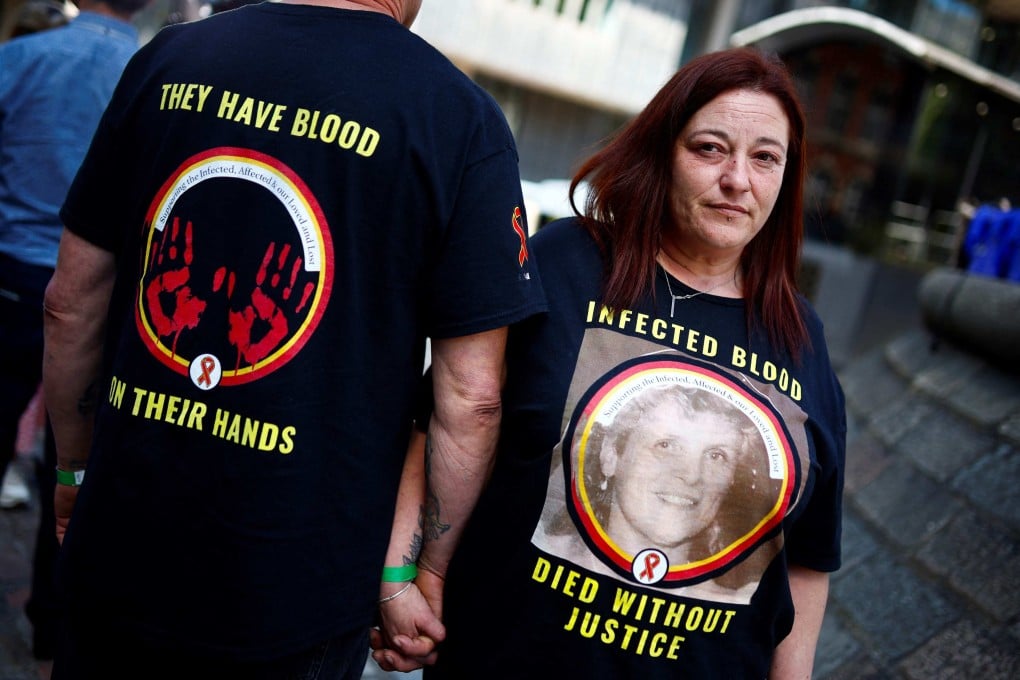Inside Out | 2 cases show UK cannot cast the first stone on rule of law
- Two cases in Britain have recently been concluded, with damning evidence of abuse of government power and cover-ups
- In drawing a line under the infected blood scandal, the British prime minister acknowledged that it was ‘a day of shame for the British state’

For those who hold the United Kingdom up as a beacon of the rule of law, the past few weeks have been challenging. Two astonishing cases – one of them in contention for five decades – have at last been concluded with damning evidence of abuse of government power, cover-ups and wholesale disregard of the principle of the rule of law.
Many others and their families have lived debilitated lives. Many were infected years after the British government knew that the blood plasma products were contaminated, but continued to use them nevertheless.
UK Prime Minister Rishi Sunak has finally drawn a line under the scandal, promising compensation to affected families that may amount to more than £10 billion (US$12.7 billion) and acknowledging that this was “a day of shame for the British state”, with “layer upon layer of hurt, endured across decades” by thousands of innocent people.
Sir Brian Langstaff, who headed the inquiry into the disaster, said in releasing the seven-volume final report: “This disaster was not an accident. People put their faith in doctors and in the government to keep them safe, and their trust was betrayed.”
